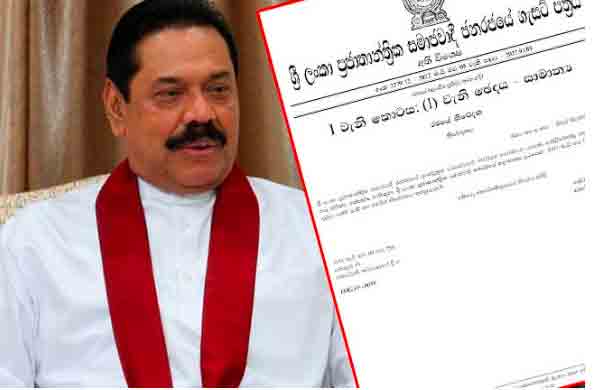Sri Lankan Prime Minister Mahinda Rajapaksa has stepped down from his position, amidst the ongoing protests against the government across the country.
He has tendered his letter of resignation to President Gotabaya Rajapaksa, a short while ago, the PM’s Office confirmed.
Rajapaksa’s resignation comes amid ongoing anti-government protests across the island over the worst economic crisis in the country since its independence.
Earlier today, police imposed a nationwide curfew and Army troops were deployed in Colombo as supporters of the ruling party attacked anti-government demonstrators outside the President’s office, leaving at least 23 people injured.
Supporters of the SLPP rallied inside Mahinda Rajapaksa’s office earlier on Monday, urging him to ignore the protesters’ demand to step down and requesting he remains in office.
After the meeting, they went to the front of the office where peaceful protesters have been demonstrating for several days while video footage showed the pro-government supporters attacking protesters with clubs and iron bars, demolishing and later burning down their tents.
The citizens of the island country have been showing this discontentment with the present government as they continue to struggle in long queues to meet their basic necessities, including food and medicines.
It was reported last week that the Sri Lankan President and several ministers had also requested for the Prime Minister to resign allowing to form a government of national unity, an interim arrangement till the present economic crisis could be dealt with.
Rajapaksa’s resignation as PM comes after rounds of discussions among the ruling Sri Lanka Podujana Peramuna Party (SLPP) and its constituent parties. The PM’s departure also results in the dissolution of the Cabinet.
The government is currently struggling to meet basic requirements for its population of 22 million citizens amid an unprecedented economic crisis caused by mishandling of finances and ill-timed tax cuts.
The island nation is also currently facing a foreign exchange deficit, which has resulted in food, fuel, power, and gas shortages, and has sought economic assistance from friendly countries.
Meanwhile, people in the country have been protesting for nearly a month demanding for the government, led by the Rajapaksa family, to resign.


